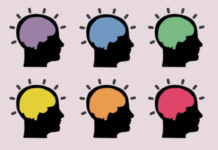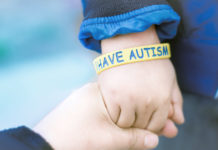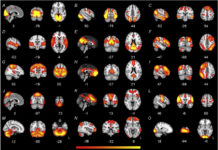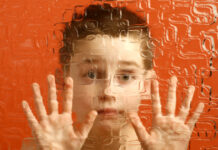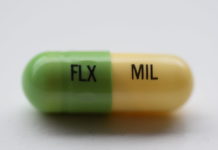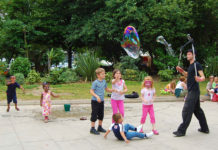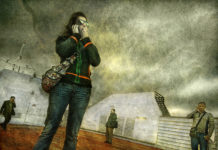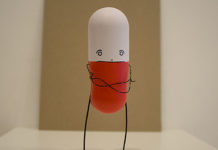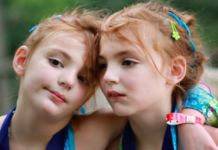“Virtual Autism” May Explain Explosive Rise in ASD Diagnoses
New clinical case studies have found that many young children who spend too much screen time—on TV’s, video games, tablets and computers—have symptoms labeled as “autism.” When parents take away the screens for a few months the child’s symptoms disappear.
Neurodiversity is Dead. Now What?
The neurodiversity movement is a public relations campaign that emphasizes the positive qualities associated with some presentations of autism—creativity, increased tolerance for repetition, enhanced empathy, and exceptional memory—while erasing or minimizing the experiences of autistics who are severely disabled.
The Scientism of Autism
Autism is now simply assumed to represent a real, tangible, identifiable ‘thing.’ But no one is asking the obvious question: On what evidential basis can you conclude that autism represents a natural category that can be differentiated from other natural categories? According to the real science, autism should be seen as a fact of culture, not a fact of nature.
Smash the Blue Lights: Autism Speaks is a ‘Danger to Self and Others’
There are few around Mad in America territory who would argue against the dangers of the National Alliance for Mental Illness. But as a movement, we often fail to recognize the dangers of their much younger sibling named ‘Autism Speaks’.
No Brain Connectivity Differences Between Autism, ADHD, and “Typical Development”
Neuroscience researchers find no differences in brain connectivity between children with diagnoses of autism, ADHD, and those with no diagnoses.
Children with Autism may be Over-diagnosed with ‘ADHD’
A commonly used ADHD diagnostic measure may find overlapping symptoms in autism and ADHD, resulting in over-diagnosis.
Fluoxetine Not Helpful for Children with Autism
A clinical trial finds Prozac no better than placebo for improving repetitive behaviors.
New Study Finds Brain Changes in Newborns Exposed to Antidepressants
A fist of its kind neuroscience study, published this month in Cerebral Cortex, found changes in the brain electrical activity of infants exposed to SSRI antidepressants during pregnancy.
Antidepressants, Pregnancy, and Autism: Time to Worry?
Does antidepressant use during pregnancy lead to autism in the exposed children? This is a very important question, which new research is beginning to address—and the findings are concerning.
Emotional Child Abuse Just as Harmful as Physical Abuse
Different types of child abuse have equivalent psychological effects, according to a study in JAMA Psychiatry. It has previously been assumed that emotional and verbal abuse could have different or less harmful impact on a child’s psychology than physical or sexual abuse, but research now suggests that these forms of abuse can be just as damaging.
“The Rise and Fall of the Blockbuster Antipsychotic Seroquel”
Martha Rosenberg highlights how the popular antipsychotic Seroquel is a perfect example of how direct-to-consumer advertising made billion dollar blockbuster drugs possible before side-effects...
Antipsychotics Associated with High Risk of Death in Children
A new study has found that children and adolescents taking a high dose of antipsychotics are almost twice as likely to die of any cause than children on other types of medications.
Exposure to Antidepressants in the Womb Linked to Autism
Researchers, publishing in Toxicology Research, review the evidence that antidepressant exposure in the womb is linked to autism spectrum disorders (ASD) in humans.
Antidepressants and Pregnancy: Who Says They Are Safe?
Depression during pregnancy is an important issue. Depression should not be ignored and depressed pregnant women deserve good treatment and care. Part of that good care, though, is providing them with full and correct information. I care for pregnant women taking antidepressants on a daily basis and too often they tell me that the only counseling they received about the medication was, “my doctor told me it’s safe in pregnancy.” This post will review the evidence in this area and address the counterarguments.
How Stigma and Social Factors Drive the Negative Health Outcomes Associated with Autism
A new study explores the interplay between social stress and quality of life for individuals self-identified with high-functioning autism.
New Research on Prenatal SSRI Exposure and Autism
Does maternal SSRI exposure increase the chances that a child will develop characteristics associated with Autism Spectrum Disorder (ASD)?
Exposure to Antidepressants in the Womb Linked to Autistic Behavior in Mice
Researchers experimenting on mice found that exposure to fluoxetine (Prozac) in utero resulted in behaviors considered in animal studies to be analogous to autism in humans.
Yoga and Mindfulness Benefit Youth with Autism Spectrum Disorder
A new review finds preliminary evidence for yoga and mindfulness-based interventions for youth diagnosed with Autism Spectrum Disorder (ASD).
Abilify: The Drug That Could Gamble Your Life Away
On this episode of America's Lawyer, Mike Papantonio discusses the numerous lawsuits pending involving the anti-psychotic drug Abilify, which has caused plaintiffs to develop serious...
Study Identifies Cause of Weight Gain From Antipsychotic Drugs
From UPI: A team of researchers from the University of Texas Southwestern Medical Center found that the serotonin 2c receptor is responsible for weight gain...
Neuroleptics and Tardive Dyskinesia in Children
There's an interesting February 11, 2014, article on Peter Breggin's website: $1.5 Million Award in Child Tardive Dyskinesia Malpractice. Apparently the individual in Dr. Breggin's paper was diagnosed with autism as a child and was prescribed SSRI's before the age of seven. The SSRI's caused some deterioration in the child's behavior and mental condition, to combat which his first psychiatrist prescribed Risperdal (risperidone). Subsequently a second psychiatrist added Zyprexa (olanzapine) to the cocktail. Both Risperdal and Zyprexa are neuroleptics (euphemistically known in psychiatric circles as antipsychotics), and are known to cause tardive dyskinesia.
The Nazi History Behind “Asperger”
From The New York Times: Although the official diagnosis of Asperger's disorder has recently been dropped from the DSM, it is still included in the...
The Autism Paradox
In this piece for Aeon, Bonnie Evans chronicles the history of the diagnosis of autism, from its establishment as a marker of dysfunction and impairment to the...
Experts Decry Dangerous Use of Antipsychotics in Children
In a featured article for Psychiatric Services, psychiatrists from Dartmouth raise the alarm on the increasing numbers of children prescribed dangerous antipsychotic drugs. Despite the fact that data on the safety of long-term use of these drugs in this vulnerable population “do not exist,” the rate of children and adolescents being prescribed antipsychotic drugs have continued to increase over the past fifteen years.
The Mind-Expanding Ideas of Andy Clark
In this piece for The New Yorker, Larissa MacFarquhar profiles the philosopher and cognitive scientist Andy Clark, whose work argues that our minds are inseparable...


